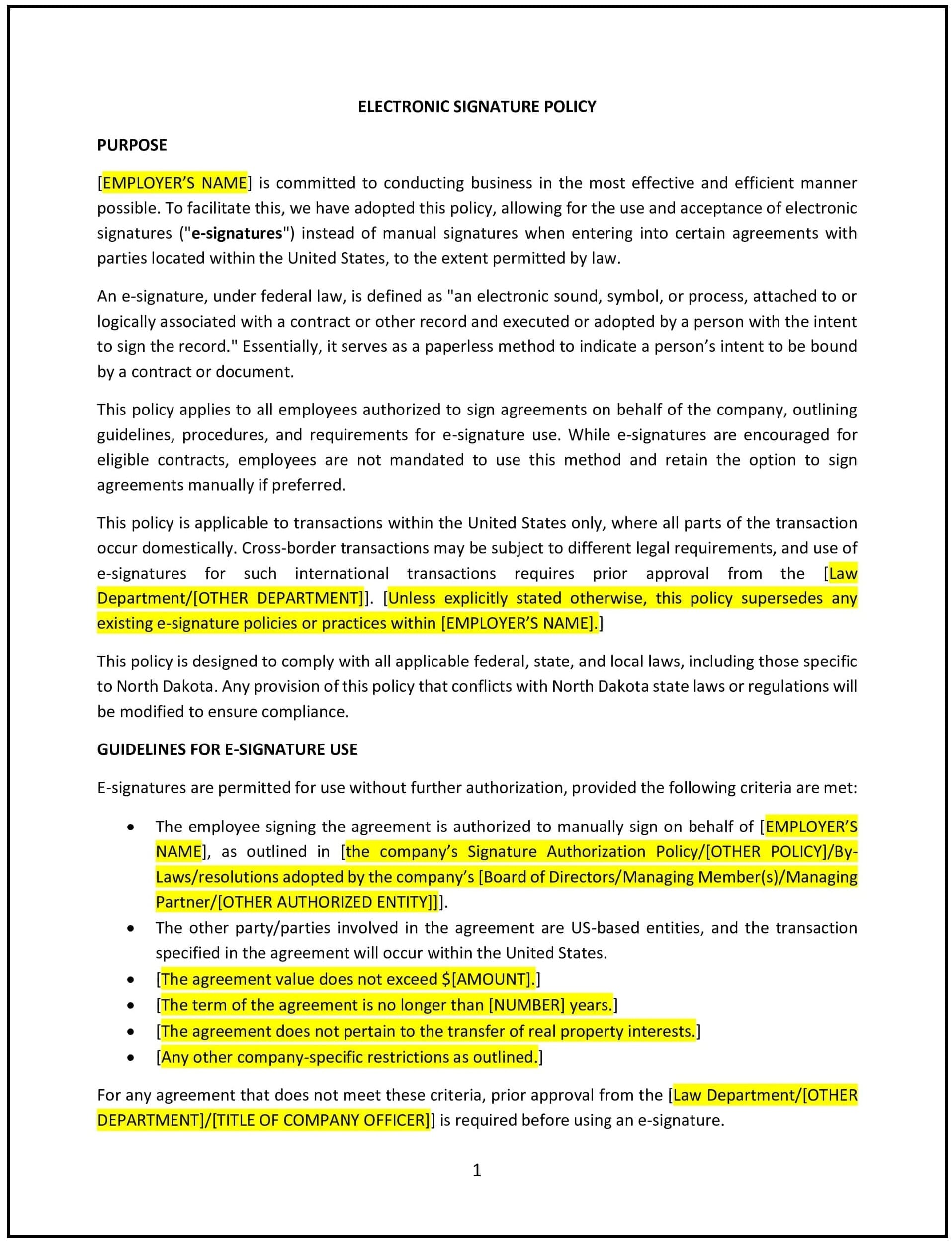Electronic signature policy (North Dakota): Free template
Got contracts to review? While you're here for policies, let Cobrief make contract review effortless—start your free review now.

Customize this template for free
Electronic signature policy (North Dakota)
This electronic signature policy is designed to help North Dakota businesses establish guidelines for the use, authorization, and security of electronic signatures in company transactions. The policy outlines acceptable use, verification procedures, and record-keeping requirements to ensure document integrity.
By implementing this policy, businesses can streamline contract execution, enhance security, and reduce paperwork.
How to use this electronic signature policy (North Dakota)
- Define electronic signature types: Specify which digital signature methods are acceptable (e.g., typed names, digital certificates, secure PINs).
- Establish authorization requirements: Identify which employees or departments can approve transactions via e-signature.
- Outline verification procedures: Implement authentication measures, such as email verification or multi-factor authentication.
- Set data security standards: Require encryption and secure storage of electronically signed documents.
- Address legal validity: Ensure electronic signatures comply with North Dakota’s Uniform Electronic Transactions Act (UETA).
- Maintain audit trails: Log timestamps, signers, and approval workflows for accountability.
- Review regularly: Update the policy to reflect advancements in e-signature technology and legal requirements.
Benefits of using this electronic signature policy (North Dakota)
Implementing this policy provides several advantages for North Dakota businesses:
- Increases efficiency: Reduces time spent on document approvals and paperwork.
- Enhances security: Protects against unauthorized modifications and fraud.
- Supports remote work: Enables employees to sign documents from any location.
- Promotes legal compliance: Aligns with North Dakota’s electronic transaction laws.
- Reflects North Dakota-specific considerations: Ensures alignment with state business regulations.
Tips for using this electronic signature policy (North Dakota)
- Train employees on proper use: Educate staff on the legal implications of e-signatures.
- Use secure platforms: Implement trusted e-signature software for all business transactions.
- Require authentication measures: Strengthen security with password-protected signatures.
- Store signed documents securely: Maintain electronic records in encrypted storage.
- Adjust as needed: Update policies based on industry best practices and legal changes.